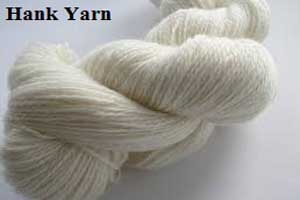
Textile mills attempting for cut in hank yarn obligation
YarnsandFibers News Bureau 2018-04-30 00:00:00 – CoimbatoreThe association said that the mills are unable to market the hank yarn as the demand has reduced over the years. But, they might face action for not meeting the hank yarn obligation as hank yarn is covered under Essential Commodities Act. The Ministry should hence reduce the hank yarn obligation to 10 % from the current 40 %. In the letter to the minister from the association and its members, the mills pointed out that between 1987-1988 and 2009-2010, the number of handlooms declined by 41 % (from 36.10 lakh looms to 21.47 lakh).
Members of the Indian Texpreneurs Federation have commanded that the obligation should be reduced to 10 %. It is mandatory for the textile mills to sell in the hank form 40 % of the yarn they produce so that the yarn needs of the handlooms are met.
Over 150 textile mills in the region have sent letters to the Union Textile Minister seeking reduction of hank yarn obligation.
Yarn production has increased 133 % (from 1321 million kg to 3079 million kg). Handloom fabric production is likely to reduce further now while yarn production is only on the rise.
Further, under the Goods and Services Tax, both, cone yarn and hank yarn attract uniform 5 % tax.
Market Intelligence
Ask for free sample Report

experience
Customer Base
dedicated team
Countries Served Worldwide









